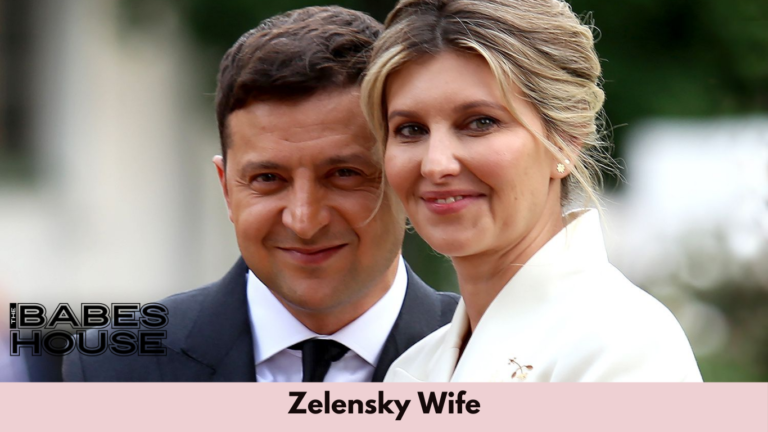The White House confirmed on Wednesday that Ukraine’s first lady, Olena Zelenska, and Russian opposition leader Alexei Navalny’s widow, Yulia Navalnaya, were invited to the State of the Union address but chose not to attend. This decision has sparked curiosity and speculation, particularly given the complex geopolitical dynamics at play.
Who Declined the State of the Union Invitation?
Olena Zelenska, the first lady of Ukraine, and Yulia Navalnaya, the widow of Russian opposition leader Alexei Navalny, were invited to attend the State of the Union address. Their presence was intended to underscore the United States’ support for Ukraine amidst its ongoing conflict with Russia and to highlight the plight of Russian opposition figures under President Vladimir Putin’s regime. However, both declined the invitation.
Why Did They Decline the Invitation?
The exact reasons for their declination were not fully detailed by White House press secretary Karine Jean-Pierre. However, The Washington Post reported that the proposed seating arrangement could have contributed to their decision. The White House intended to seat both women near first lady Jill Biden, but this plan reportedly caused discomfort for the Ukrainians. This discomfort stemmed from past statements by Alexei Navalny, in which he suggested that Crimea, annexed by Russia in 2014, belonged to Russia. Despite Navalny’s condemnation of Putin’s aggression, these remarks were troubling for the Ukrainian representatives.
The Geopolitical Tensions Involving Crimea
Crimea’s annexation by Russia in 2014 remains a contentious issue. Ukraine and the international community largely view the annexation as illegal and a violation of international law. Alexei Navalny’s previous statements suggesting Crimea belongs to Russia, despite his opposition to Putin, have complicated his relationship with Ukrainian officials. This historical context likely influenced Olena Zelenska’s decision to decline the invitation, as being seated near Navalny’s widow could be seen as tacit approval of his past statements.
President Biden’s Foreign Policy Agenda
In light of these developments, questions arose about how President Joe Biden would address foreign policy issues in his State of the Union address. Press secretary Karine Jean-Pierre emphasized that President Biden would continue to advocate for support for Ukraine. Specifically, he aims to press House Republicans to approve more aid for Ukraine, emphasizing that national security should transcend political divisions.
Biden’s Call for Bipartisan Support
Jean-Pierre highlighted President Biden’s commitment to making the case that House Republicans need to move forward with the national security supplemental on the floor. “We know that it would get overwhelming support… we can’t let politics get in the way of our national security, so, the president is going to make that clear,” she stated. Biden’s administration has been steadfast in its support for Ukraine, providing financial and military aid to help the country defend itself against Russian aggression.
The Importance of Continued Support for Ukraine
The Biden administration has consistently underscored the importance of supporting Ukraine in its fight against Russian aggression. This support is not only crucial for Ukraine’s sovereignty but also for global stability. The president’s State of the Union address was expected to reinforce this message, urging bipartisan cooperation to ensure that aid to Ukraine is not hindered by domestic political disagreements.
The Role of International Figures in the State of the Union
Inviting international figures such as Olena Zelenska and Yulia Navalnaya to the State of the Union serves multiple purposes. It highlights the U.S. administration’s commitment to supporting democratic movements and human rights globally. Moreover, it sends a message to authoritarian regimes that the U.S. stands in solidarity with opposition figures and those fighting for freedom. However, the complex web of geopolitical relationships can sometimes lead to unexpected diplomatic sensitivities, as seen in this instance.
The Broader Implications for U.S. Foreign Policy
The decision by Zelenska and Navalnaya to decline the invitation, while influenced by specific historical and political contexts, also reflects the broader challenges in international diplomacy. Balancing support for democratic movements while respecting the nuanced positions of different nations requires careful consideration and strategic communication. President Biden’s administration will need to navigate these complexities as it continues to build international coalitions against authoritarianism.
Conclusion: Navigating Diplomatic Sensitivities
The decision by Ukraine’s first lady and Alexei Navalny’s widow to decline the State of the Union invitation underscores the intricate nature of international diplomacy. As President Biden prepares to address the nation, his commitment to supporting Ukraine and advocating for global democratic values remains clear. However, the administration must continue to navigate the delicate balance of international relations, ensuring that its actions align with its strategic objectives while respecting the nuanced positions of its allies. The State of the Union address will be an opportunity for President Biden to reaffirm his administration’s foreign policy priorities and call for bipartisan support in addressing global challenges.

